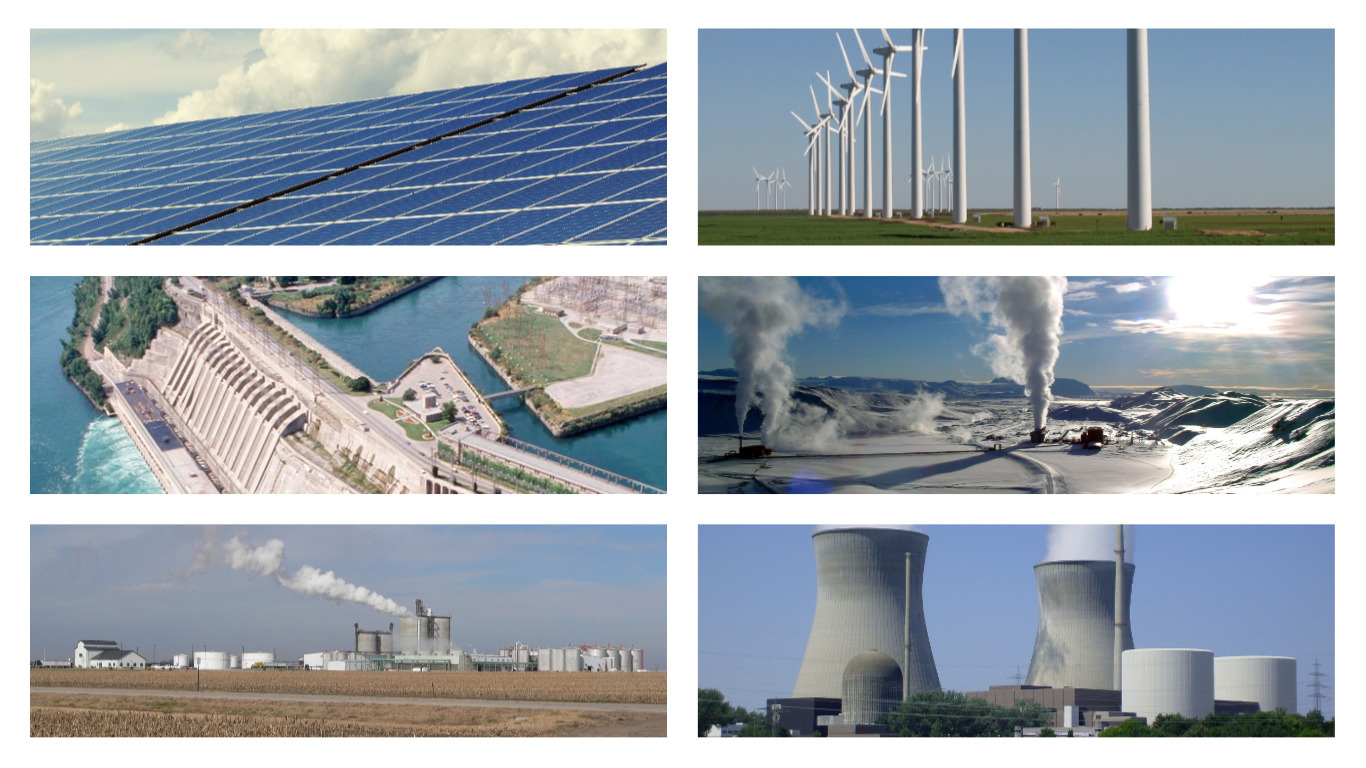There are various sources of energy that are used to generate electricity and power our homes, industries, and transportation. These sources can be categorized into two main types: non-renewable and renewable energy sources. Here’s an overview of different sources of energy:
Non-Renewable Energy Sources:
- Fossil Fuels:
- Coal: Historically, coal has been a major source of energy for electricity generation and industrial processes.
- Natural Gas: Natural gas is used for electricity generation, heating, and as a fuel for vehicles.
- Oil (Petroleum): Crude oil is used for transportation fuels, such as gasoline and diesel, as well as in the petrochemical industry.
- Nuclear Energy:
- Nuclear reactors use uranium or other fissile materials to produce heat through nuclear fission, which is then converted into electricity.

Renewable Energy Sources:
- Solar Energy:
- Photovoltaic (PV) solar panels convert sunlight into electricity.
- Solar thermal systems use sunlight to heat a fluid, which can be used for electricity generation or heating.
- Wind Energy:
- Wind turbines capture the kinetic energy of the wind and convert it into electricity.
- Hydropower:
- Hydroelectric power plants harness the energy of flowing water (rivers or dams) to generate electricity.
- Geothermal Energy:
- Geothermal power plants use heat from the Earth’s interior to generate electricity or provide direct heating.
- Biomass Energy:
- Biomass refers to organic materials like wood, agricultural residues, and waste, which can be burned directly for heat or converted into biogas, biofuels, or electricity.
- Tidal and Wave Energy:
- Tidal and wave energy capture the energy from ocean tides and waves to generate electricity.
- Hydrogen:
- Hydrogen can be used as a fuel or energy carrier when produced through processes like electrolysis using renewable energy sources.
- Waste-to-Energy:
- Waste-to-energy facilities burn municipal solid waste to produce electricity and heat.
Each energy source has its own set of advantages and disadvantages in terms of environmental impact, sustainability, and efficiency. The transition to cleaner and more sustainable energy sources, such as renewables, is a key focus in efforts to combat climate change and reduce environmental pollution.

